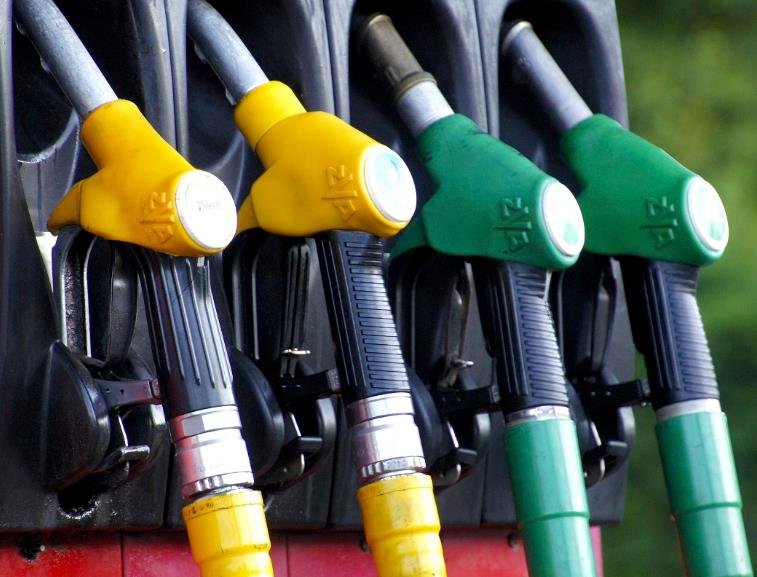In a significant move, Egypt has raised domestic fuel prices by up to 15%, just days before the International Monetary Fund (IMF) is set to review the country’s $8 billion loan program. This decision, announced by the Committee for Pricing Petroleum Products, aims to align domestic fuel prices with global market trends and address the economic challenges facing the nation. The price hike is expected to have wide-ranging implications for the Egyptian economy, affecting everything from transportation costs to inflation rates.
The decision to raise fuel prices comes amid rising global oil prices, driven by geopolitical tensions and economic pressures. The Committee for Pricing Petroleum Products cited the need to reflect international market trends in domestic pricing as a key reason for the increase. This move is part of a broader strategy to rationalize fuel subsidies and reduce the financial burden on the national budget. By adjusting fuel prices, the government aims to promote fiscal sustainability and allocate resources more effectively.

The global energy crisis has had a significant impact on countries worldwide, and Egypt is no exception. The ongoing conflicts, such as the Russo-Ukrainian war, have led to fluctuations in oil prices, which in turn affect domestic fuel costs. By aligning fuel prices with global trends, Egypt seeks to stabilize its energy market and ensure a steady supply of fuel. This approach also helps mitigate the risks associated with currency depreciation and rising import costs, which have further contributed to the upward trajectory of fuel prices.
The increase in fuel prices is expected to have a ripple effect on various sectors of the economy. Higher transportation costs will likely lead to increased prices for goods and services, potentially fueling inflationary pressures. Businesses that rely heavily on fuel for their operations may face higher operating costs, impacting profitability and competitiveness. The government has announced measures to mitigate the impact on vulnerable segments of society, but the overall economic implications remain significant.
Addressing Economic Challenges
Egypt’s decision to raise fuel prices is also driven by the need to address pressing economic challenges. The country has been grappling with fiscal deficits and high levels of public debt, which have been exacerbated by the global economic downturn. Fuel subsidies have long been a significant burden on the national budget, consuming a substantial portion of government expenditures. By reducing these subsidies, the government aims to free up resources for other priority areas, such as infrastructure, healthcare, and education.
The IMF review of Egypt’s loan program is a critical juncture for the country’s economic policy. The loan program, which aims to support economic reforms and stabilize the economy, includes conditions related to fiscal discipline and subsidy rationalization. The decision to raise fuel prices is seen as a step towards meeting these conditions and demonstrating the government’s commitment to economic reform. Successful implementation of these reforms is essential for securing continued support from the IMF and other international partners.
In addition to fiscal considerations, the government is also focused on promoting sustainable development. The increase in fuel prices is expected to encourage more efficient use of energy and reduce wasteful consumption. This aligns with broader efforts to transition to a more sustainable energy mix, including investments in renewable energy projects. By promoting energy efficiency and sustainability, Egypt aims to reduce its environmental footprint and contribute to global efforts to combat climate change.
Implications for the Future
The decision to raise fuel prices ahead of the IMF review has significant implications for Egypt’s economic future. On one hand, it demonstrates the government’s willingness to take difficult but necessary steps to address fiscal challenges and promote economic stability. On the other hand, it poses risks to social stability, as higher fuel prices can lead to public discontent and protests. Balancing these competing priorities will be a key challenge for the government in the coming months.
Looking ahead, the government will need to continue its efforts to implement economic reforms and promote sustainable development. This includes further rationalizing subsidies, improving fiscal discipline, and investing in key sectors such as infrastructure and renewable energy. By maintaining a focus on long-term economic stability and sustainability, Egypt can navigate the challenges ahead and build a more resilient and prosperous economy.
The IMF review will be a critical test of Egypt’s economic policy and reform efforts. Successful completion of the review will be essential for securing continued financial support and maintaining investor confidence. The government’s ability to manage the economic and social impacts of the fuel price increase will be closely watched by both domestic and international stakeholders. Ultimately, the success of these efforts will depend on the government’s commitment to reform and its ability to effectively communicate and implement its policies.
